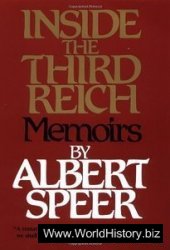Four Celtic languages - Welsh, Breton, and Irish and Scottish Gaelic - are still spoken on an everyday basis today. Two others - Manx and Cornish - which died out in (in terms of Celtic history) relatively recent times, are the subjects of language revival campaigns. The exact number of Celtic speakers is uncertain. Around two and a half million people claim to be able to speak a Celtic language but the number of habitual speakers is certainly very much lower, probably less than 500,000. It is a well-established misconception, deliberately encouraged by nationalists, that the decline of the Celtic languages is due to official persecution by British and French governments. This may have been a factor in the decline of Breton but British governments are guilty mainly of indifference. The real reasons for the decline of the Celtic languages are more complex: emigration, immigration of non-Celtic speakers, lack of social, economic and educational opportunities are all more important than calculated governmental malice. Speaking Welsh in Welsh schools, for example, was punished not by government diktat: it was punished (if it was punished - the practice was not universal) by Welsh-speaking teachers with the support of Welshspeaking parents who believed, rightly, that fluency in English would give their children better opportunities in life. Similarly, the decline in Gaelic language teaching in the Highlands in the nineteenth century was the result of parental pressure, not government policy.
A key role for persecution as a factor in the decline of the Celtic languages is disproved by the experience of Irish Gaelic. Around 1800 there were probably about four million Gaelic speakers in Ireland but the Famine of the 1840s and the mass emigration that followed began a rapid decline in the second half of the nineteenth century until there were only 55,000 at the time of independence. An important factor in the decline of Gaelic was the reluctance of the Catholic church to sanction the translation of the scriptures into the vernacular: thus Gaelic was never able to become the language of religion in Ireland as Welsh had in Protestant Wales. Many early nationalists, such as Daniel O’Connell (1775-1847), were contemptuous of Gaelic and encouraged Gaelic speakers to learn English, the better to compete with their colonial masters. Following independence, Gaelic became, with English, the official language of the Irish state. Gaeltachts (Gaelicspeaking areas) received special status and government subsidy, while Gaelic became a compulsory subject in all schools. The result of this is that, superficially, Irish Gaelic is the most flourishing of the Celtic languages - over 1,400,000 people claim to be able to speak it. The reality is very different. Despite 80 years of government support, Gaelic has experienced an unremitting decline as an everyday spoken language. In 1991 only 22,000 people claimed to be habitual speakers of Gaelic and, according to the most pessimistic estimates, the real figure may be as low as 10,000 (less than 0.3 per cent of the Republic’s population). Even in many Gaeltachts, habitual Gaelic speakers now make up less than 50 per cent of the population. It is quite possible these days to visit a Gaeltacht and not hear Gaelic spoken at all. In surveys, the Irish show a consistently high level of support for Gaelic, and it is clearly an important element of Irish identity, yet this does not translate into a willingness to speak the language. The truth is that, in practice, the Irish are unwilling to forgo the advantages of the English language, which has allowed them very successfully to present their culture to an appreciative worldwide audience.
Scottish Gaelic also continues to decline. The 66,000 speakers in Scotland in 1991 had fallen to 58,000 by 2001, but with nearly 30,000 habitual speakers Scottish Gaelic is in a better state than its Irish counterpart. Despite considerable state support for Gaelic language education, broadcasting and publishing, equivalent to a subsidy of over ?500 a year for every Gaelic

Plate 37 ‘Say no to the language bill!’ Welsh language protest at the Welsh Office in 1993
Source: PA Photos
Speaker, Gaelic is probably past saving on the Scottish mainland. There remain self-contained Gaelic-speaking communities in the Hebrides where the language may have a viable future. One hopeful sign for the future is the high level of support for Gaelic language education among incomers to the Hebrides, who want their children to be able to integrate into the local community. Gaelic has never been the language of all of Scotland, and enthusiasts for Scots (i. e. the form of English spoken in the Lowlands, the language of Burns’ songs and poems) have argued that their language should also receive state recognition and support.
Welsh is undoubtedly the healthiest of the Celtic languages. In absolute terms the numbers of Welsh speakers peaked around 1851, but as a proportion of the total population of Wales they were already in decline. By 1900 only half of the people of Wales were Welsh speakers and by 1991 it was down to around 19 per cent (total speakers 591,000, habitual speakers 326,000). Even so, it is still the dominant language over large areas of rural north, mid and south-west Wales. In the last decade, there have been signs that the decline has been turned around, with a considerable overall increase in numbers of people able to speak some Welsh registered in the 2001 census, up to 797,000 (28 per cent of the population). Much of the credit for this goes to the Welsh nationalist party Plaid Cymru (The Party of Wales), which was founded to campaign on language issues in 1925. The party’s campaigning won equal status for Welsh with English in 1967 and many measures supportive of the language have followed, including a Welsh language TV channel and compulsory instruction in the Welsh language in schools in Wales. Bearing in mind the plight of Gaelic in Ireland, however, it remains to be seen whether these achievements will lead to a sustained increase in the use of Welsh as an everyday language. Welsh language teaching has not been universally welcomed. In English-speaking areas, many parents regard Welsh lessons as a politically motivated waste of their children’s time.
The state of Breton is the hardest to judge because of the lack of official statistics (a deliberate policy of successive French governments). Because of the demands of Brittany’s flourishing tourist industry and the growing monoglot French-speaking population, Breton speakers habitually only use their language privately, when among family and friends. Visitors, especially to the towns and the beautiful coastal areas, now rarely hear Breton spoken in public. While it is believed that a majority of adults living in rural areas west of Vannes and St Brieuc have some knowledge of Breton, the language is spoken habitually only in six or seven isolated pockets. In the early 1990s there were an estimated 660,000 Breton speakers but perhaps as few as 100,000 of these were habitual speakers. While there are now greater opportunities for education in Breton, there is no sign of the language’s decline being arrested.
Cornish and Manx Gaelic became extinct only in recent historical times, the last native Cornish speaker dying in 1891, the last native Manx speaker as recently as 1974. Both languages are the subjects of ongoing revival campaigns but the number of people who have attained proficiency in them is very small, perhaps less than a hundred. Cornish never became a true literary language and knowledge of its grammar, syntax and vocabulary is incomplete. ‘Revived Cornish’ is actually a synthetic language, containing elements borrowed from Breton and Welsh. The majority of the populations of the Isle of Man and Cornwall are now of English extraction and the idea that Manx and Cornish can be restored as everyday languages is surely a romantic fantasy. Realistically, their future is probably as ‘hobby languages’ for enthusiasts. Although Cornish did receive government recognition in 2002, its use on road signs and such like will be little more than a gimmick intended to appeal to tourists.
The long-term future for the Celtic languages must be at best uncertain; only Welsh seems really secure. Language campaigners persist in believing that the decline of the Celtic languages can not only be halted but also reversed, even that they may become truly national languages again. To support their belief, they point to the successful revival of Hebrew in modern Israel after it had been extinct as a spoken language for over 2,000 years. But the circumstances are hardly comparable. Israel was a nation of immigrants from many different countries who did not share a common language. Everybody, therefore, had an interest in learning Hebrew. Modern Celts, however, have no such incentive as they all, whether they speak a Celtic language or not, also speak English or French. People will certainly continue to learn the Celtic languages as a way to better understand and to express their commitment to their cultural identity but, in practice, how many of them will invest the considerable effort required to attain true fluency in a language for which they will have little everyday use?
For some, a Celt is essentially someone who speaks a Celtic language. For them, the future survival of the Celts depends upon the survival of their languages; if the languages become extinct, then so will the Celts. Such a view seems overly pessimistic. It is increasingly clear that most modern Celts attach as much or greater importance to other cultural, political and historical aspects of identity as they do to language. The Celtic identity is developing independently of its linguistic roots and is still spreading and winning new converts. A case in point is the remarkable example of the growth of Celtic identity in Galicia in north-west Spain, which owes nothing to the Celtic languages. Modern Galician Celts argue that folklore, building traditions, costumes, folk music and social values are just as valid a basis for a Celtic identity as language. Although the Celtic Congress turned down Galicia’s application for membership, on the grounds that Celtic languages have been extinct there for nearly 2,000 years (Galego, the modern Galician language, is a form of Portuguese), some Galicians claim that their culture is actually more Celtic than that of the recognised Celtic countries.
It is also clear that language issues play little part in the revival of Celtic identity in Cornwall. Despite the very small numbers of people attaining proficiency in Revived Cornish, a recent survey of schoolchildren in the county showed that a third saw themselves as being Cornish rather than English, while a tenth of the population of the county has signed a petition calling for the setting up of a Cornish assembly. Economic grievances, such as high unemployment caused by the decline of traditional industries such as tin mining and fishing, low wages and house prices inflated to unaffordable levels by well-off Londoners looking for holiday homes, are the root cause of this nascent separatism. The revival in 1998 of Cornwall’s medieval Stannary parliament, which once governed tin mining in the county, was essentially a publicity stunt to draw attention to the decline of that industry. It is not a truly representative body as only members of the stannary (tin mining district) community can vote and eligibility is based on Cornish descent. Despite this the parliament is claiming a wider campaigning role for itself. In 2001 three stannators (members of the Stannary parliament) stole English Heritage notices from ancient monuments around Cornwall, branding them as evidence of‘English cultural aggression’. When the stannators were eventually caught by a security guard and arrested, the parliament issued a statement describing the thieves as political prisoners. There is also a Cornish nationalist party, Mebyon Kernow: though it was founded in 1951, it has yet to make an electoral breakthrough, suggesting that, while devolution may be an important issue for many Cornish people, nationalism is not.
The growth of Celtic identity in Galicia also highlights one of the main reasons for the wider success of the modern Celtic identity. For Galicians, adopting a Celtic identity is part of their wider struggle to maintain a non-Spanish identity. The Celtic revival of the eighteenth and nineteenth centuries occurred for very similar reasons - the need of marginalised peoples to maintain a separate identity and avoid assimilation by powerful neighbours. The reason that the Celts remain such a potent part of the Welsh, Irish, Scots, Cornish, Manx and Breton identities is that those needs have not gone away. In fact they have intensified. While in 1800 the English made up only half of the population of the British Isles, by 2000 they made up 75 per cent. The Bretons are similarly increasingly outnumbered by the French, even in Brittany. In addition there is the powerful lure of globalised culture which even large nations like the English and French cannot resist. It has been said that what Ireland needs to worry about now is not so much Anglicisation as ‘Los Angelisation’. When cultures start to become homogenised, the importance of small differences is magnified. Celtic identity is also being strengthened by wider political developments, such as devolution in the United Kingdom, which saw the opening of a Welsh assembly and a Scottish parliament in 1999, and European Union regional policies, which have allowed minorities in member states to appeal over the heads of central governments for recognition, cultural funding, language support and economic aid. In fact a Celtic past is something that is shared by almost all the countries of the European Union. Could the idea that Europeans are all Celts under the skin one day be promoted as a basis for a common identity? The idea is not so far fetched: it was probably not by accident that a major European Union-sponsored exhibition of Celtic art and archaeology in the early 1990s was subtitled ‘The Fathers of Europe’.




 World History
World History









